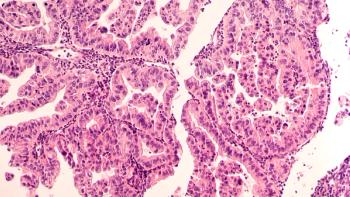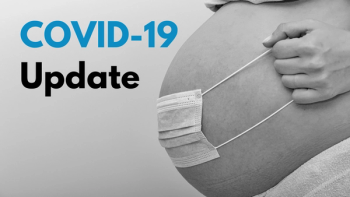
It was a very busy week for the Contemporary OB/GYN team.

Officials with Operation Warp Speed said that COVID-19 vaccine distribution will begin 24 hours after the Food and Drug Administration's (FDA) approval.

Less than half of ob/gyns offer their patients the two most effective forms of emergency contraception -- ulipristal acetate and the copper intrauterine device (IUD) -- according to a national survey.

The risk of opioid use after endometriosis diagnosis is significantly greater in patients who used opioids before diagnosis, according to a retrospective analysis of data from a large health database.

The results of this retrospective study reflect experience with both vaginal and cesarean deliveries early in the pandemic, in comparison with similar periods in 2018 and 2019.

Heavily pretreated ovarian cancer patients who received a combination therapy of a novel engineered interleukin-2 (IL-2) cytokine plus pembrolizumab achieved an acceptable safety profile, according to a small cohort of an ongoing phase 1/2 trial.

Pregnant women with autoimmune-related interstitial lung disease (ILD) can have safe pregnancy outcomes if closely monitored by a multidisciplinary team of physicians.

The first Enhanced Recovery After Surgery (ERAS) guideline for standardizing and optimizing perioperative care for women undergoing minimally invasive gynecologic surgery (MIGS) has been published in The Journal of Minimally Invasive Gynecology.

What to look for this week on Contemporary OB/GYN

Data on COVID-19 during pregnancy, as reported by the CDC, in collaboration with state, local, and territorial health departments and external partners.

From vitamin D to calcium supplements and beta-blockers for bone loss density prevention, this slideshow from Rheumatology Network breaks it all down.

It was a very busy week for the Contemporary OB/GYN team.

A literature review has concluded that, although some studies find that vitamin K might increase bone mineral density (BMD) and reduce fracture risk in people with osteoporosis, the potential benefits of vitamin K supplements are not sufficiently supported.

Merck earned a new indication for pembrolizumab (Keytruda), in combination with chemotherapy, to treat locally recurrent unresectable or metastatic triple-negative breast cancer (TNBC).

An analysis of CDC data presented at American Heart Association's Scientific Sessions 2020 suggests rates of high blood pressure complications during pregnancy nearly doubled during a period lasting from 2008-2017.

In this episode of Pap Talk, Contemporary OB/GYN Deputy Editor Jon I. Einarsson, MD, MPH, PhD, moderates a discussion with Robert K. Zurawin, MD, and Gaby Moawad, MD, on the new and existing surgical technologies and techniques available in ob/gyn.

A pandemic has challenged health care leaders like never before. Here’s how to get your team through it.

Findings from a retrospective study by researchers from NYU suggest that women with COVID-19 in pregnancy have an increased risk of placental abnormalities, regardless of whether their infection is symptomatic.

Sweeping policy-level implementation efforts have mandated shared decision-making in other areas of medicine; similar mandates could impact ob/gyn.

CDC guidelines to keep you and your practice safe from COVID-19 infection.

Studies have shown that rural youth lack access to mental health services, but research is scarce on the availability of suicide prevention services in rural areas.

Because obstructive uropathy due to gynecologic benignities is an extremely rare, difficult, and challenging life-threatening condition, physicians should always consider the existence of uropathy.

What to look for this week on Contemporary OB/GYN

Researchers from Northwestern University Feinberg School of Medicine say that women who have children at home may be at higher risk of severe COVID-19 in pregnancy.

Are targeted screenings for sexually transmitted infections (STIs) or universally offered screenings more cost-effective than not screening?

This case presents a unique dynamic involving certified nurse midwives; following protocols enhanced defensibility.

Female veterans with posttraumatic stress disorder (PTSD), especially younger women who are non-white, have an increased risk of developing heart disease.

It was a very busy week for the Contemporary OB/GYN team.

The etiology of this condition is unclear but is consistent with a loss of the normal vaginal flora and increase in inflammation.

Neither the levonorgestrel-releasing intrauterine system (LNG-IUS) nor the copper intrauterine device (IUD) impact the incidence of cellular atypia, but do interfere with the microbiota over time, according to liquid-based cervical cytology and microbiological analyses.